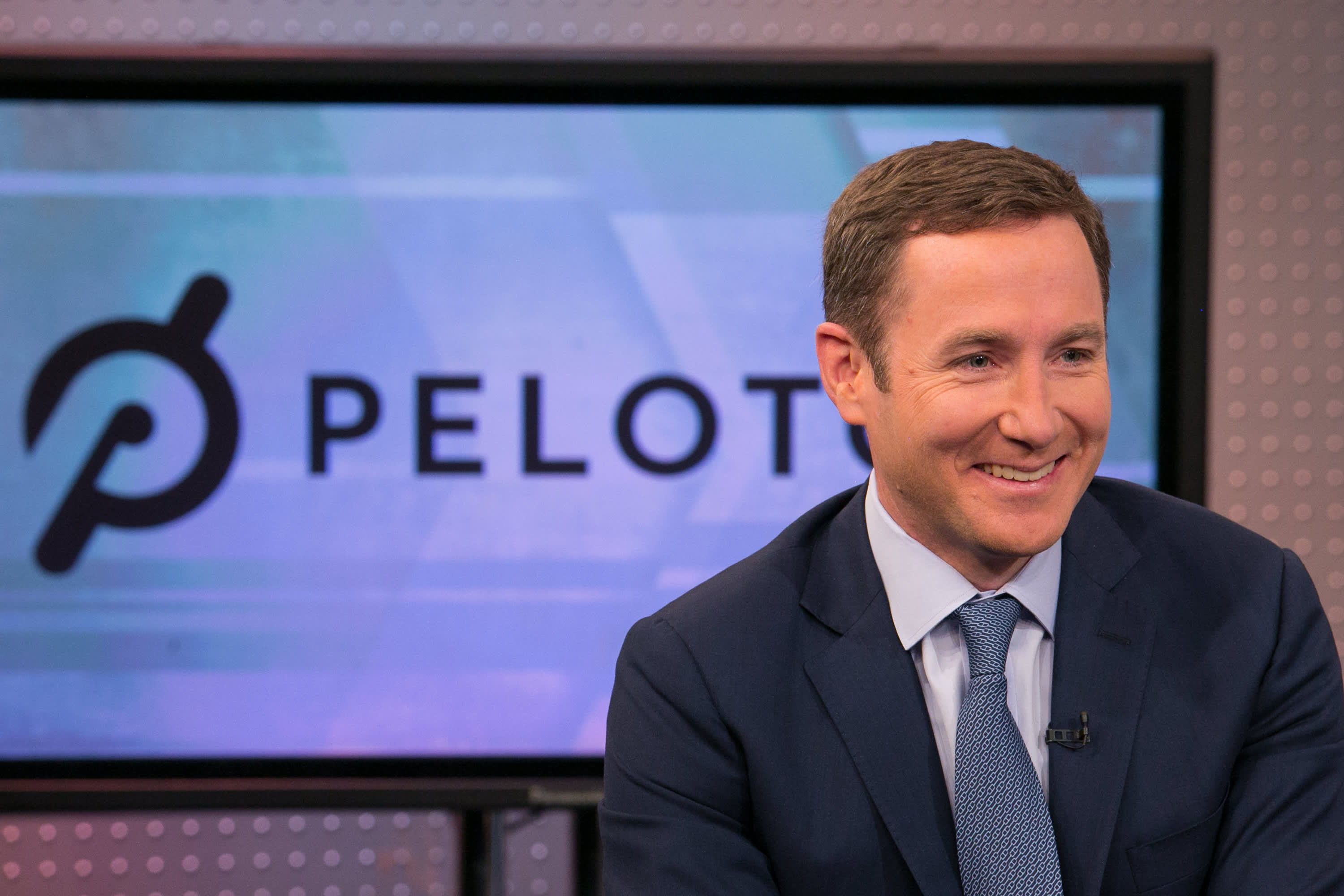Peloton names tech exec Barry McCarthy to replace CEO John Foley, shares tumble

Peloton is overhauling its C-suite, cutting hundreds of other corporate jobs and slashing millions of dollars in annual costs as it hopes to win back investors’ confidence and reset its business for growth coming out of the pandemic.
The connected fitness company announced Tuesday it plans to replace CEO John Foley and cut 2,800 jobs, or about 20% of corporate positions.
Barry McCarthy, the former chief financial officer of Spotify and Netflix, will become CEO and president and join Peloton’s board. McCarthy currently serves on the board of delivery start-up Instacart.
Peloton shares were falling around 8% in premarket trading on Tuesday, having closed Monday up nearly 21%. As of Monday, the stock is down about 31% year to date, giving Peloton a market value of $9.7 billion.
The job cuts won’t affect Peloton’s instructor roster or content. The company employed 6,743 people in the United States as of June 30, more than double the roughly 3,281 employees it counted a year earlier, according to annual filings.
Peloton said it expects to slash roughly $800 million in annual costs and reduce capital expenditures by roughly $150 million this year.
It plans to wind down the development of its Peloton Output Park, the $400 million factory that it was building in Ohio. It said it will reduce its delivery teams and the amount of warehouse space it owns and operates.
The news of Foley stepping down, along with other cost cutting measures, came ahead of the release of Peloton’s fiscal second-quarter results. That release had been planned for after the market Tuesday, but the company moved up the announcement, and will hold a conference call at 8:30 a.m.
In January, Peloton reported preliminary quarterly revenue and subscriber figures, but Tuesday’s announcement also included a lower forecast for this year’s results.
Peloton now anticipates fiscal 2022 revenue within a range of $3.7 billion to $3.8 billion, down from prior expectations of $4.4 billion to $4.8 billion.
The company also anticipates it will end the year with about 3 million connected fitness subscribers. Previously, it projected it would have 3.35 million to 3.45 million.
“Since founding Peloton a decade ago, we’ve grown this brand to engage and motivate a loyal community of more than 6.6 million Members,” Foley said in a press release announcing the leadership changes. “I’m incredibly proud to have worked with such talented teammates over the years who have helped me build Peloton into what it is today, and I’m confident that Barry is the right leader to take the company into its next phase of growth.”
Foley called out McCarthy’s experience manging subscription business models and digital streaming companies.
Foley will become executive chair of the company’s board, while William Lynch, Peloton’s president, will step down from his executive role but remain a director.
Erik Blachford, a director since 2015, will leave the board. And two new directors will be added: Angel Mendez, who runs a private artificial intelligence company focused on supply chain management, and Jonathan Mildenhall, former chief marketing officer of Airbnb.
In a release announcing the board appointments, Pamela Thomas-Graham, chair of the nominating committee, said the appointments came after a several months search. With these changes the board will have 9 directors.
“As Peloton continues to evolve, we are committed to regularly evaluating our Board’s composition to ensure we have the right mix of skills and experience to advance our goals,” she said.
Roughly a week ago, activist Blackwells Capital — which has a less than 5% stake in the company — sent a letter to Peloton’s board urging Foley to quit his role as CEO, and asking the company to consider selling itself.
Reports have since circulated that potential suitors could include Amazon or Nike. However, Foley along with other Peloton insiders had a combined voting control of roughly 80% as of Sept. 30, which would make it practically impossible for any deal to go through without their approval.
Following Tuesday’s news, Blackwells Chief Investment Officer Jason Aintabi said the actions didn’t go far enough.
“Peloton CEO John Foley naming himself Executive Chairman and hiring a new CFO does not address any of Peloton investors’ concerns,” Aintabi said in a statement. “Mr. Foley has proven he is not suited to lead Peloton, whether as CEO or Executive Chair, and he should not be hand-picking directors, as he appears to have done today.”
Foley, 51, founded Peloton in 2012. He previously served as the president at Barnes & Noble. Foley also brought on his wife, Jill, to lead up Peloton’s apparel business.
Lynch, a former Barnes & Noble CEO, was brought on by Foley in 2017 to help drive growth.
The duo helped lead Peloton through its highs during the Covid pandemic, when the company saw consumer demand massively pulled forward, as people in the United States and abroad were looking to exercise without going to the gym. But in order to meet that surge in demand, Foley over invested and Peloton was left with a bloated cost structure that it must now restructure in order for the business to survive.
Peloton’s market value had surged to roughly $50 billion about a year ago, but was recently hovering around just $8 billion, before news over takeover talks started circulating.
On Tuesday morning, shares were on pace to open below their debut price of $29. The stock had fallen below that mark on Jan. 20, after CNBC reported that Peloton was adjusting its production levels to meet lower demand.
Foley had said in a statement that evening, “We are taking significant corrective actions to improve our profitability outlook and optimize our costs across the company.”
Investors have since been awaiting details on what exactly those corrective actions will look like.




